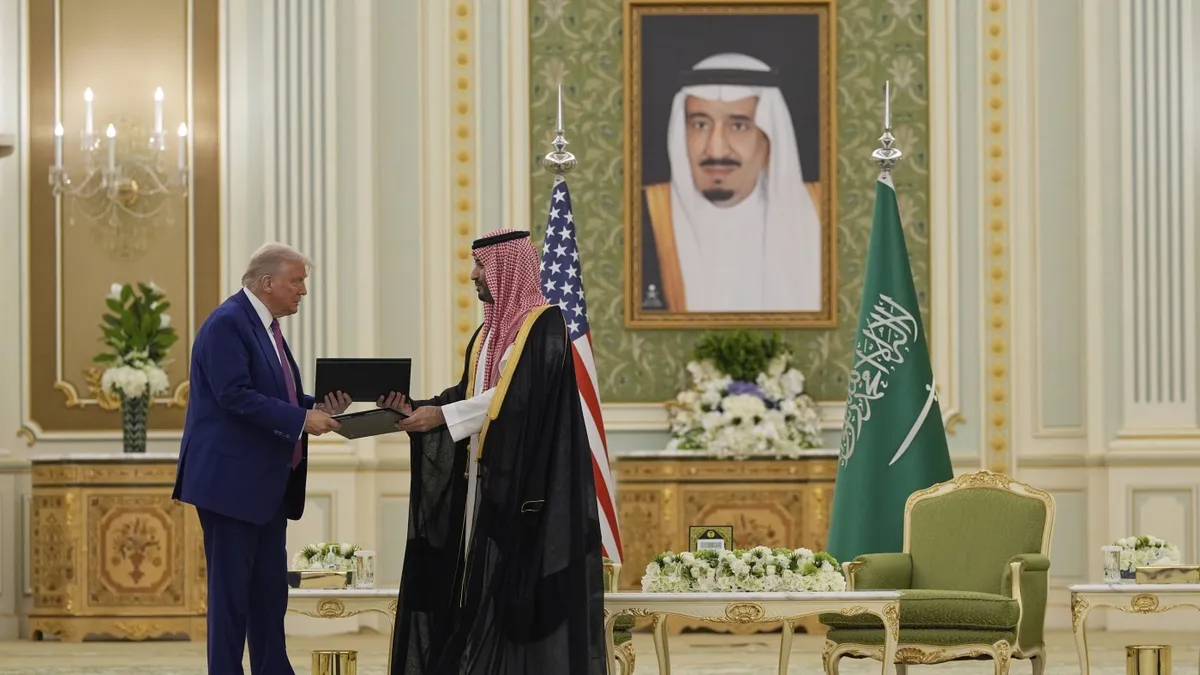
President Trump's visit to the Arab Gulf states marks a pivotal moment in both domestic and international politics during his second presidency. This trip, characterized by significant diplomatic engagements, has stirred reactions from lawmakers across the political spectrum. One of the most notable offers he received was a luxurious $400 million plane from Qatar, intended to serve as Air Force One. This proposal has drawn criticism from both Republican and Democrat lawmakers, raising questions about ethics and governance.
During his visit, President Trump announced a massive investment plan from Saudi Arabia, which involves a staggering $600 billion to be invested in the U.S. This financial commitment includes arms deals, technology investments, and the establishment of AI data centers. Such investments highlight the strategic partnership between the U.S. and Saudi Arabia, aimed at fostering economic growth and stability in the region.
On Wednesday, President Trump met with Ahmed al-Sharaa, the interim president of Syria, describing him as a "tough guy" with the potential to stabilize Syria. This meeting is significant, considering Sharaa’s government has expressed interest in normalizing relations with Israel, a long-time adversary. Additionally, Trump announced his intention to lift sanctions on Syria, a move that has caused confusion for Israel, particularly given its military operations against Syria since the ousting of former dictator Bashar al-Assad.
In an interview with NPR, Thomas Friedman, a Pulitzer Prize-winning columnist for The New York Times, shared his insights on Trump’s approach to the Middle East. He emphasized the potential for creative diplomacy, particularly regarding Syria. Friedman noted that Sharaa has made positive overtures towards Israel and is under pressure from a diverse coalition of Syrians to foster a more inclusive society. He urged policymakers to give Sharaa a chance to prove himself, stating, “Give him a reputation to live up to.”
Friedman elaborated on Trump’s strategy, suggesting that the president aims to diffuse regional conflicts and foster ties between traditional adversaries like Syria and Israel. This approach could establish a pro-American regional security structure that stabilizes the area while allowing for a reduced U.S. military presence. However, Friedman criticized Trump’s acceptance of gifts from Middle Eastern leaders, labeling it a violation of the Constitution’s Emoluments Clause and a potential hindrance to U.S. credibility as a neutral mediator in the region.
When discussing the ongoing conflict in Gaza and the war against Hamas, Friedman emphasized the need for a comprehensive ceasefire and the return of hostages. He expressed concern that the current Israeli government, led by Prime Minister Bibi Netanyahu, faces pressure from far-right factions that oppose peace initiatives. According to Friedman, the biggest challenge lies in the implementation of any proposed agreements, highlighting the necessity for a robust diplomatic framework to ensure long-term stability in the region.
In conclusion, President Trump’s recent visit to the Arab Gulf states represents a significant shift in U.S. foreign policy, with potential implications for regional stability. As discussions continue around investment, sanctions, and peace initiatives, the effectiveness of these strategies remains to be seen. Observers like Thomas Friedman provide valuable insights into the complexities of Middle Eastern politics, urging a cautious yet hopeful approach to diplomacy.